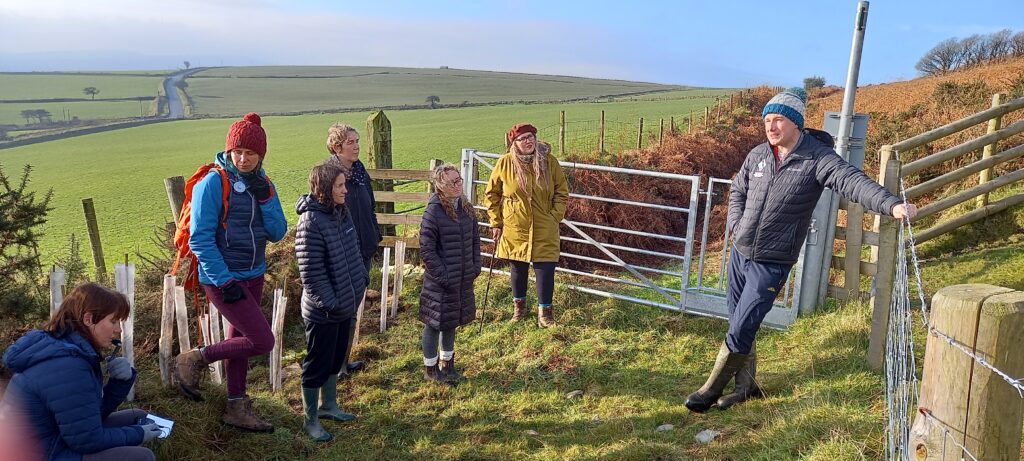The Narrating Rural Change network brings together a multi-disciplinary group of researchers community organisations, artists, NGOs, farmers and others with a direct interest to explore discourses of rural change in a time of climate and nature crises.
What stories have been told, and what narratives might shape rural and national responses to climate and biodiversity crisis?

Past, Present, Futures
Emerging from Wales, and taking a broad chronological perspective, the network is interested in the relationships between agriculture, place, community, culture and language, and how we narrate past present and future rural change.
Contexts
1: Climate Change and Biodiversity
In Wales, 90% of land is given over to farming. Globally, agriculture contributes around 47% of methane and 12% of carbon emissions. In the UK agriculture is responsible for 10% of all greenhouse gas emissions.
Intensive agriculture and other changes in land use are one of the primary drivers of plummeting biodiversity.
2: Rural Change
The debate over land use – for food production, carbon sequestration, and reversing biodiversity loss – is increasingly divisive.
Land use projects that would help sequester carbon and improve biodiversity, often under the banner of rewilding, have met with widespread hostility; indeed the Welsh experience has become a ‘textbook’ example of how not to ‘do’ rewilding. If farmers are viewed as environmental vandals, environmentalists have been as seen as eco-colonialists with no respect for local knowledge and no interest in the impact of changing land use on agricultural communities and the Welsh language in particular.
Meanwhile, rural communities are facing dramatic changes. Agriculture will be affected by changes to subsidies and post-Brexit trade deals. Land use may be altered by a new wave of investment companies buying up farmland for carbon-offsetting. Rural communities continue to experience the impact of second homes.
Without engaging with the human and cultural aspects of farming, and with the wider communities in rural areas, a just and effective green transition will not be achieved.
3: Moving beyond the impasse
Wales is unusual in having a statutory definition of sustainability that includes a fourth pillar of ‘cultural sustainability’. This, alongside the other provisions of the Well-being of Future Generations Act (Wales) 2015, demand an holistic ecological-cultural solution to changes in rural land use.
If agriculture is to successfully transition and transform to address the twin crises of climate change and biodiversity loss, agricultural communities must be a central part of that process. Moreover the wellbeing of rural cultures must be part of the wider transformation towards a sustainable future.
Artists

This network includes artists and is experimenting with arts-based and location-based practices.
